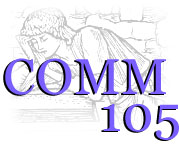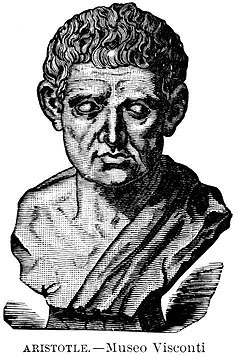
Office: HGH 210; phone: (408) 924-5378
Email: wooda@email.sjsu.edu
Web: http://www.sjsu.edu/faculty/wooda

|
Dr. Andrew Wood Office: HGH 210; phone: (408) 924-5378 Email: wooda@email.sjsu.edu Web: http://www.sjsu.edu/faculty/wooda |

Aristotle challenges Socrates' notion that the good life is best spent contemplating ideal forms of reality by arguing that humans are naturally political animals, that we are meant to act together in support of the polis. In this way, Aristotle extends upon Plato's teleology by positing the proper places for citizens. While doing so, however, he sharply limits the definition of citizenry. In the Politics, Aristotle argues that only those people who share in some form of official office, a member of a jury or a legislator, are truly citizens. Indeed, "we cannot include as citizens all who are necessary to the city's existence." Compare this idea to the definition of citizen in the movie, Starship Troopers. In that film, citizens are so named because of their prior military service; all others are "civilians." What do you think about that distinction?
From this discussion, Aristotle turns to the identity of the city. Is the city identified by its government, its individuals, or its geography? Here, Aristotle argues that walls do not constitute a city, nor do its people. Individuals are born and die. Like flowing water, they cannot define the stream. Instead, cities are defined by their constitutions. This is particularly interesting to us. A constitution is a text, a rhetorical document designed to enact through communication the proper roles of a people. As students of communication, self, and society, we must consider the question: can an individual be judged according to some essential concept of self? Aristotle would say, "not really, you 21st century marvel. We are judged by our ability to conform to our constitutions - be they political or teleological." Do you agree?
Off-campus Resource
Benjamin Jowett, Aristotle's Politics: "[I]t is evident that the state is a creation of nature, and that man is by nature a political animal. And he who by nature and not by mere accident is without a state, is either a bad man or above humanity."
Note: These pages exist outside of San Jose State University servers and their content is not endorsed by the page maintainer or any other university entity. These pages have been selected because they may provide some guidance or insight into the issues discussed in class. Because one can never step into the same electronic river twice, the pages may or may not be available when you request them. If you have any questions or suggestions, please email Dr. Andrew Wood.